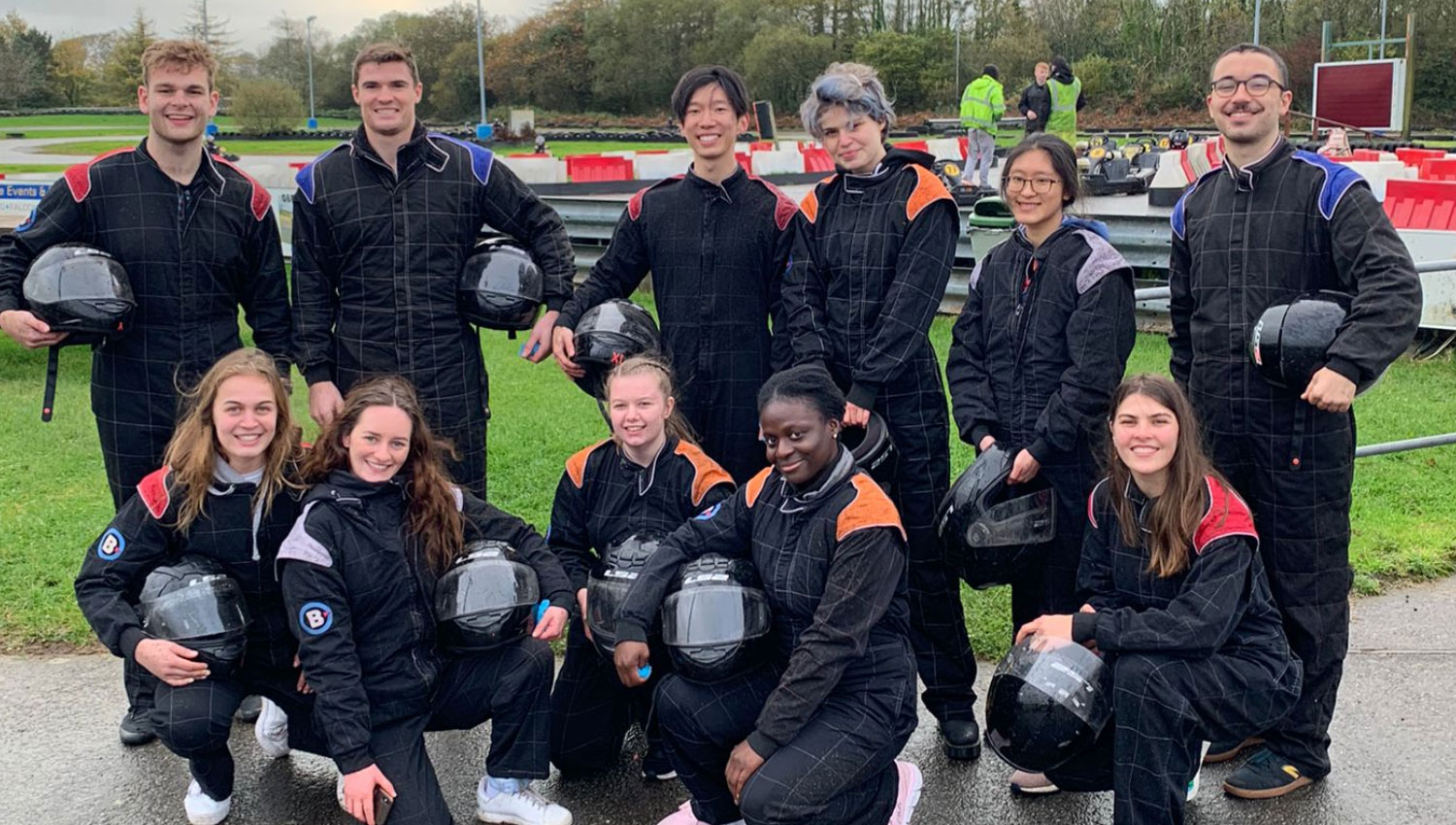Going on placement can be one of the best experiences of your life but it’s understandable that it might be quite a daunting prospect at first. We've put together some quick information to help you while you're away, and to remind you that the Students' Union is still here for you, even if you're not in Cardiff.
Gall fynd ar leoliad fod yn un o brofiadau gorau eich bywyd ond gall y syniad godi ofn arnoch i ddechrau sy’n gwbl ddealladwy. Rydym wedi rhoi rhywfaint o wybodaeth at ei gilydd yn gyflym i’ch helpu tra byddwch i ffwrdd, ac i’ch atgoffa bod Undeb y Myfyrwyr dal yma i chi, hyd yn oed os nad ydych chi yng Nghaerdydd.

Heath Park on Tour
Parc y Mynydd Bychan ar Daith
Heath Park on Tour is a project we started to support you during your placement experience away from Cardiff. We offer a series of activities where you are while you’re on placement. The activities are free and give you the chance to meet up with other students.
Mae Parc y Mynydd Bychan ar Daith yn brosiect a ddechreuon ni i’ch cefnogi yn ystod eich profiad ar leoliad i ffwrdd o Gaerdydd. Rydym yn cynnig cyfres o weithgareddau lle rydych chi tra byddwch chi ar leoliad. Mae’r gweithgareddau am ddim ac yn rhoi cyfle i chi gwrdd â myfyrwyr eraill.
Keep an eye on the upcoming events below to find out more information about Heath Park on Tour dates.
Cadwch lygad ar y digwyddiadau sydd i ddod isod i gael rhagor o wybodaeth am ddyddiadau Parc y Mynydd Bychan ar Daith.
Upcoming events
Digwyddiadau sydd i ddod